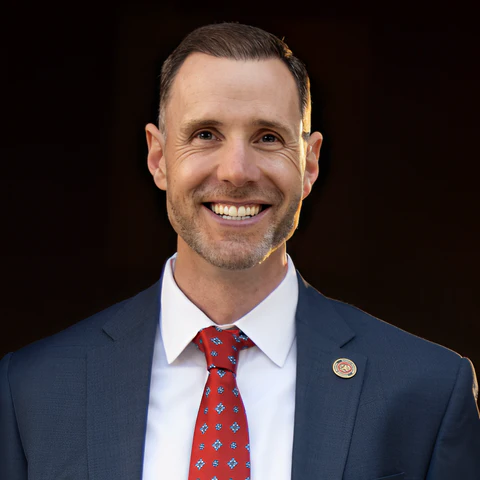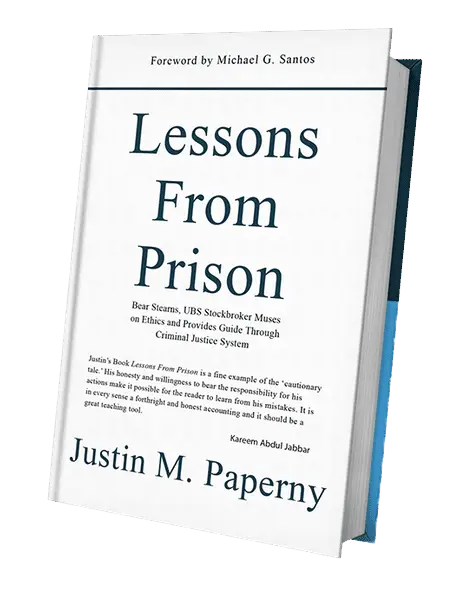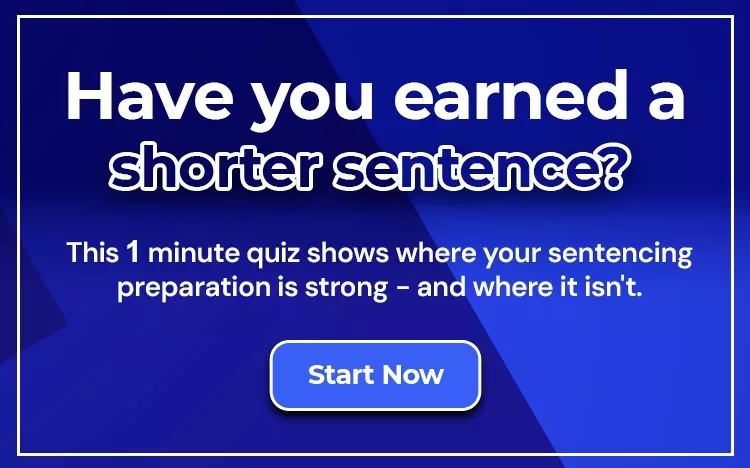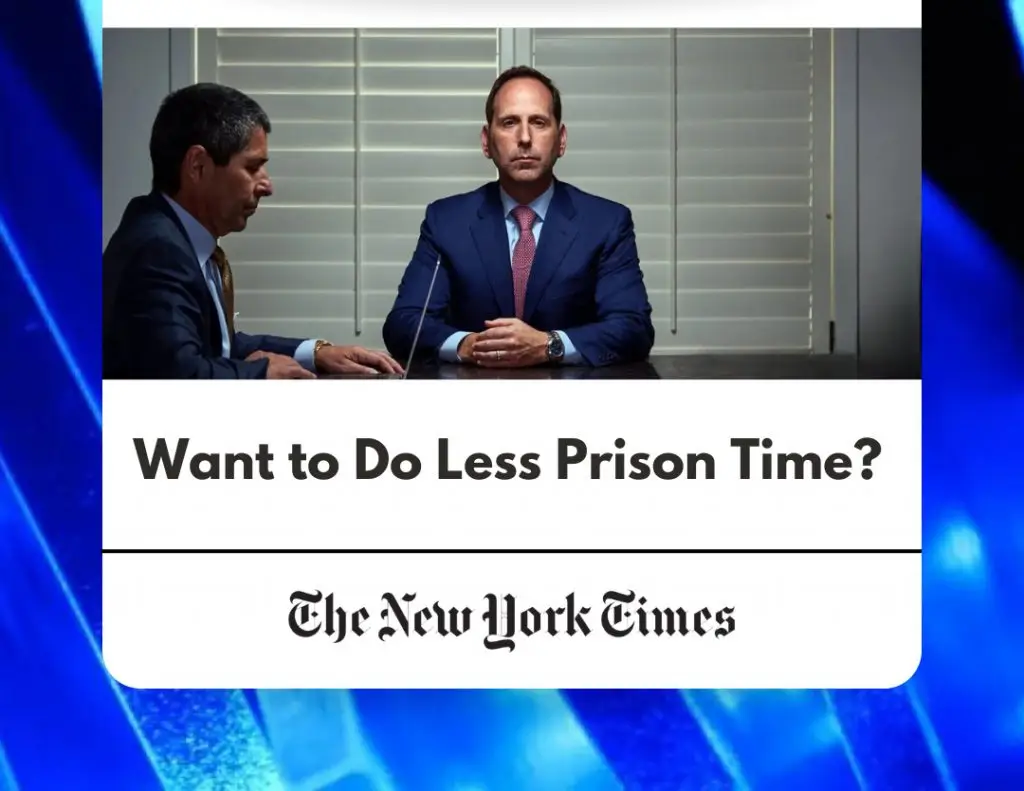White Collar Advice: Federal Sentencing & Mitigation Experts
Guiding You Through Every Stage of the Federal Sentencing Process

Mark Werksman
“WCA has been an invaluable partner since 2009, guiding my clients through sentencing and prison with practical strategies and firsthand knowledge.“
Criminal Defense Attorney, Former Deputy District Attorney and former Assistant United States Attorney

Benson Varghese
“White Collar Advice is a must use service. They help our clients through every crucial step of the judicial process.“
Attorney at Varghese Summersett

“I use WCA for all of my clients, utilizing their mitigation products and support.“
Peter Hardin, Defense Attorney, Former Judge Advocate in the U.S. Marine Corps and Special Assistant U.S. Attorney

Bernard Brody
The Only Team I Would Ever Recommend
As a federal defense attorney in Atlanta, I work with professionals facing prison, and they are terrified. That’s when I introduce them to Justin and his team—they eliminate fear and uncertainty with expert guidance. They are the only consultants I trust and recommend.

I worked with WCA during the Varsity Blues case in 2019—they achieved significant results. I’ve continued to refer clients, and they always deliver. Their success in influencing government stakeholders is well documented.
David Rosenfield, Defense Attorney, Former Assistant U.S. Attorney at the U.S. Attorney’s Office for the District of New Jersey
×

Highest recommendation for Justin and his team!
“Our eldest daughter said it best when Justin left the meeting with all of us: “ no matter what happens at the hearing, we now have a plan and I feel that we are not alone”.
Ayesha Khalid

Truly life changing work
White collar advice helped me to greatly reduce my sentence. I was able to properly and effectively advocate for myself to my judge. I was sentenced to 12 months instead of 3 years thanks to white collar advice.
Mark Hillman

Irreplaceable guidance and support
You can have fantastic lawyers truly working hard for you but still not experienced in how to navigate all aspects before and after sentencing. The guidance, support, and real-world experience from Justin and his team are simply not replaceable.
Andrew Park

I wanted to fix the broken window
I faced 48–60 months, but the judge said, ‘I’m going to do something unusual.’ I got probation and 21 days in jail. That wasn’t luck—I built my record, proved my growth, and contributed to Prison Professors to show I was part of the solution
David Moulder

If your lawyer won’t hire them - fire your lawyer
If your lawyer won’t hire them, fire your lawyer. Justin and the White Collar Advice team guided me through every step, focusing on what mattered—getting me home sooner. I served 10.5 months on a 37-month sentence because of their advice. Call them early.
Branden Coluccio

I want to express my deepest gratitude…
What could have been the worst-case scenario became the best possible outcome. My son faced serious jail time, but with WCA’s leadership, we took immediate action. Through hard work, we proved this was a one-time, foolish mistake—completely out of character for him.
Mike Kestler

White Collar Advice Helped Me Avoid Prison
My attorney referred me to White Collar Advice, and she was 100% right. Their knowledge, care, and trustworthiness guided me to the best possible outcome—no prison, just three years of probation. If you’re facing prison time, you need this team on your side.
Gary Hansen

Fantastic Experience!
The team was responsive, efficient, and tailored their guidance to my case, complementing my legal team. Forrest, Brad and Justin were outstanding—always available and understanding. Their support eased my stress through the pre- and post-sentencing process.
Stanley Kaplan

Time doesn't stand still. Nor should we.
The plan I built with WCA helped me serve 17 months on a 51-month sentence—Judge called my efforts “extraordinary” and took 11 months off, plus 12 months in the halfway house. WCA helped me prove I was a candidate for leniency—not by asking, but by showing.
Tracii Hutsona

5-stars, because I couldn't go higher
The government was asking for 57–71 months, and I was sentenced to 15. They are so much more than “prison consultants”—more like disaster specialists, therapists, and friends. I am forever grateful.
Kent Courtheyn

Amazing support in EU to US Extradition case
White Collar Advice helped me fight extradition from the EU to the U.S. due to serious medical conditions. Carole’s detailed medical affidavit played a key role in my case. Their professionalism, fair pricing, and timely delivery make them my top recommendation.
Peter Mihaylov
Our Federal Prison Consulting & Mitigation Services
Pre-Sentencing Preparation
We support you through every phase of a government investigation, from initial inquiries to formal charges, helping you build a case to demonstrate why you deserve reduced charges or a shorter sentence.
- Personalized Case Strategy
- Sentencing Mitigation
- Documentation and Preparation, Including Timelines
- Working with Lawyers
- Prison Professors Charity
Post-Sentencing & Reentry Planning
We only ask you to do what we’ve done ourselves. Our team helps you prepare for prison, succeed during your term, and build a record proving you’re a candidate for early release and greater freedom after prison.
- Personalized Release Plans
- Early Release Strategies: First Step Act and RDAP
- Prison Professors Talent
- Halfway House and Supervised Release Prep
- Reputation Building
Reputation & Reintegration
Rebuilding requires owning your past and creating a new record. Don’t suppress bad reviews or press releases. We help rebuild through social media, content creation, and volunteering. Show your value authentically.
- Content Creation
- Authentic Social Media Campaigns
- Proven Strategies
- Comprehensive Support
- Prison Professors Charitable Corporation
Master Sentencing and Prison
Claim your FREE copy of Lessons From Prison now and learn how to ensure a shorter sentence and earlier release with practical strategies and real-life case studies.



Federal Sentencing FAQs
What does a federal sentencing mitigation specialist do?
A mitigation specialist documents the totality of a person’s life so a judge sees more than the conviction. This includes timelines (we teach people how to build them in our timeline guide), personal narratives, community service work, release plans, and character reference letters. At White Collar Advice, we build records judges study closely because they are authentic and show documented actions that reflect who the person is today—not just what appears in the charging documents.
What is sentencing mitigation and why does it matter?
Sentencing mitigation is evidence showing why a person deserves leniency. Judges evaluate the record someone builds: documented life story, timelines, treatment, community work, and a detailed release plan. That record should identify with victims and show specific changes made since the investigation. To see examples of what strong submissions look like, review our guide on building a comprehensive mitigation package and our mitigation success stories. Mitigation matters because it influences how long of a prison sentence a judge will impose.
What steps can I take before sentencing to receive a shorter federal prison sentence?
Someone receives a shorter sentence by starting early and documenting specific actions before the hearing. Begin by asking: What does my judge know about me, and what does he not know? Create assets that educate the judge on who you are, what you’ve learned, and your plan moving forward. Our sentencing preparation guide and pre-sentencing preparation steps show how people build records that influence outcomes. Cooperation or restitution alone is not enough. A strong record built before sentencing leads to a shorter sentence.
What should I say to a federal judge at sentencing?
A sentencing statement should be the final step in your pre-sentence mitigation. It is shorter than your personal narrative and must accept responsibility, identify with victims, and explain specific changes made since the conduct. Our detailed guide on allocution explains how to structure an effective statement, and many people model their approach after the framework we outline for the personal narrative for federal sentencing. Judges ignore excuses and scripted speeches. They want personal facts. The strongest statements sound human and vulnerable, not drafted by a lawyer.
I just got indicted - what should I do first?
After an indictment, start by understanding the position of stakeholders like the prosecutor and judge. “I’m sorry” or “I meant well” does not help you. Learn how government investigations actually begin by reviewing how investigations start and what steps to take if you’re worried about being charged with a crime. Begin documenting your life, timeline, and actions immediately. The government works full time on your case. You should too.
What are the most important mitigating factors judges look for?
Judges look for responsibility, victim awareness, stability, and a believable plan for the future. They notice when someone started preparing and whether the work continued over time. You can learn how judges analyze these issues in our detailed explanation of how judges weigh mitigating and aggravating factors and in our interview summarizing how a federal judge wants people to prepare for sentencing. The guidelines are only a starting point—judges depart when they see compelling evidence, not just cooperation or restitution. Persuading all stakeholders, including the probation officer, matters. As Judge Bough told us: “If you break my window, don’t say sorry. Tell me how you’ll fix it.”
How much time will I actually serve on a federal sentence?
Think of time served like a grade: A, B, C, D, or F. Everyone receives good time and possibly First Step Act credits, but that’s only the baseline. People who earn an “A” build a record that shows case managers and probation they’re suited for maximum time in the community. Our overview of early release from federal prison explains how the system works, and real cases—like Tracii Hutsona’s 9-month sentence reduction—show what earning an “A” looks like in practice.
How do I earn First Step Act and good-conduct credits?
You earn First Step Act and Good Conduct Time credits by avoiding disciplinary infractions and completing programs and work assignments. People lose both when they get incident reports or skip required activities. This page on disciplinary infractions in federal prison shows what puts credits at risk, and the core attitudes of RDAP highlight the behaviors that help people progress faster. Those who track their progress and avoid problems move to home confinement sooner. Not everyone is eligible for earned-time credits under the current rules; PrisonProfessors.org continues to advocate for expanded eligibility so more people can earn them.
How can I help a loved one preparing for sentencing?
You can help a loved one by making sure they embrace the right message for a judge and hold their lawyer accountable. Remind them they—not their lawyer—must lead their mitigation. Support them by preparing effective character reference letters and ensuring they avoid common character letter mistakes. Make sure their mitigation team has documented outcomes, not promises. Encourage them to build their record every day and not drift while waiting for sentencing. Write a letter and stay involved in their progress.
How do I rebuild my reputation after a conviction?
You rebuild your reputation by starting early and producing documented work every day. Don’t hide from DOJ press releases or pay anyone to suppress them. Embrace what happened and become part of the solution through verified contributions, including work with PrisonProfessors.org. Our guide on turning incarceration into a career asset explains how to rebrand your experience, and our page on financial recovery after a felony outlines another essential step. Build a record that proves this experience became an asset, not a weakness. Share what you’ve learned openly and let your actions do the talking.
Guiding Justice-Impacted People Through Federal Sentencing and Prison
White Collar Advice proudly supports the Prison Professors Charitable Corporation (PPCC). PPCC partners with federal and state prison systems, impacting the lives of more than 1 million people annually by helping them prepare for employment and success upon release.
Start Your Mitigation Today - Waiting Helps No One but the Government
Don’t just watch our videos – apply the federal sentencing mitigation strategies we use every day to help people earn shorter sentences and earlier releases from prison. Learn from judges, wardens, probation officers, and the real sentencing lessons we share as white-collar mitigation consultants.





















